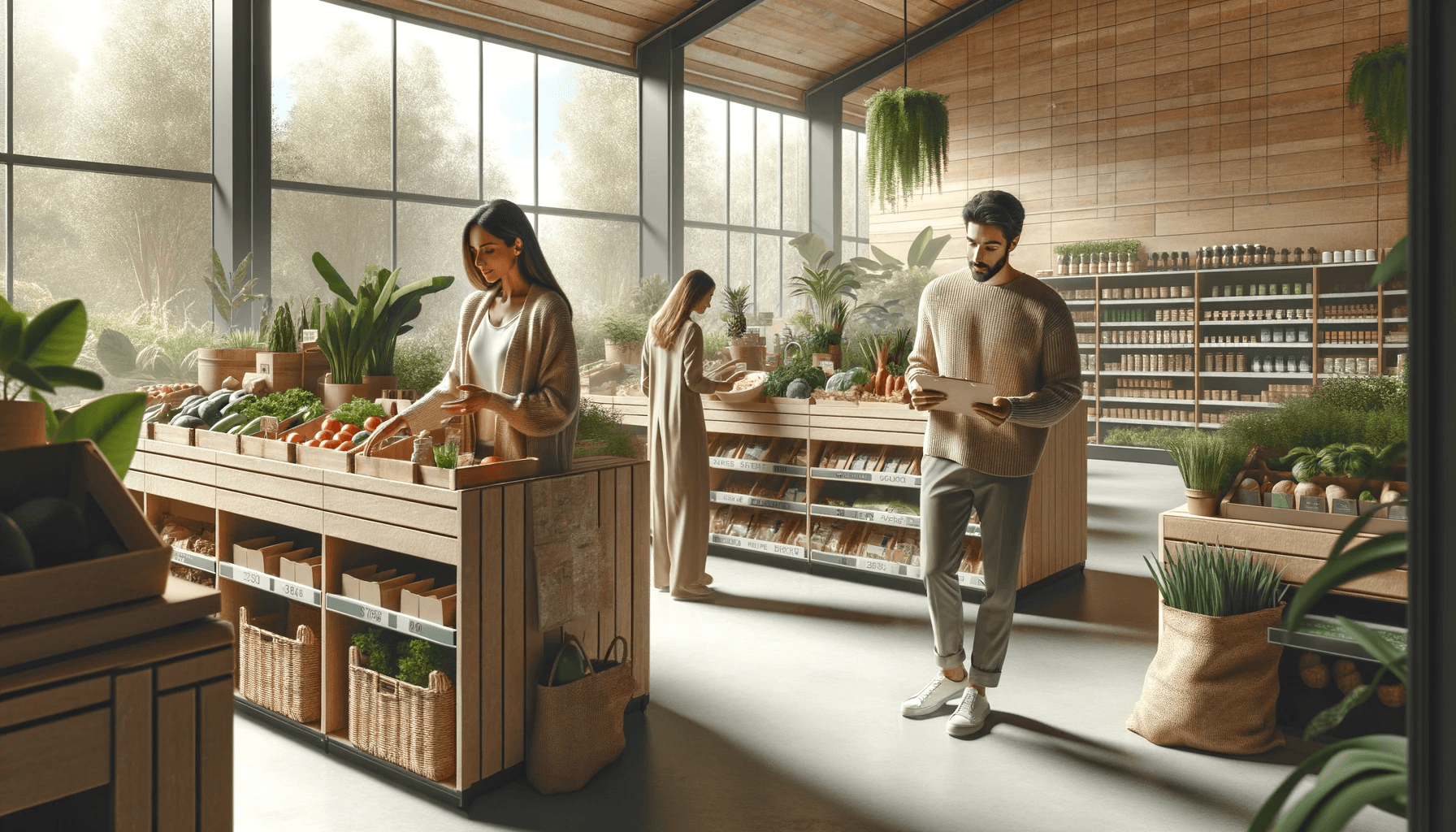For you who are a gardener wanting to turn organic, spending your love for a sustainable and eco-friendly garden? This article will discuss some ways of practicing organic gardening that can help you have a successful garden while not harming the environment. From planning your gardens to saving water as well as environment friendly practices, there are several strategies that support a sustainable gardening practice. It is time to explore organic gardening and reveal how you can make an awe-inspiring garden using nothing but natural materials.

Garden Planning for Sustainability
When it comes to developing sustainable garden plans, one of the key considerations is reflecting on gardening methods such as use of organic materials. Sustainable planning for gardens aims at creating gardens that look great and also help in preserving the local ecosystem through incorporation of organic farming techniques.
Drip Irrigation for Sustainable Water Use
When it comes to sustainable garden plans, one of the elements you must put into consideration is how to use organic materials when gardening. For example, sustainable planning for gardens involves creating beautiful gardens that will also preserve the ecosystem by incorporating organic farming techniques.
Creating a Sustainable Garden Plan
Evaluate your garden space and identify where sustainable practices can be introduced in order to conserve resources. One way is to incorporate native plants which are well adapted to the local climate and require less water and low maintenance hence saving money. Moreover, planting a garden with a variety of species can support life on earth as an important point here about sustainable gardening.
Eco-Friendly Plants for Your Garden
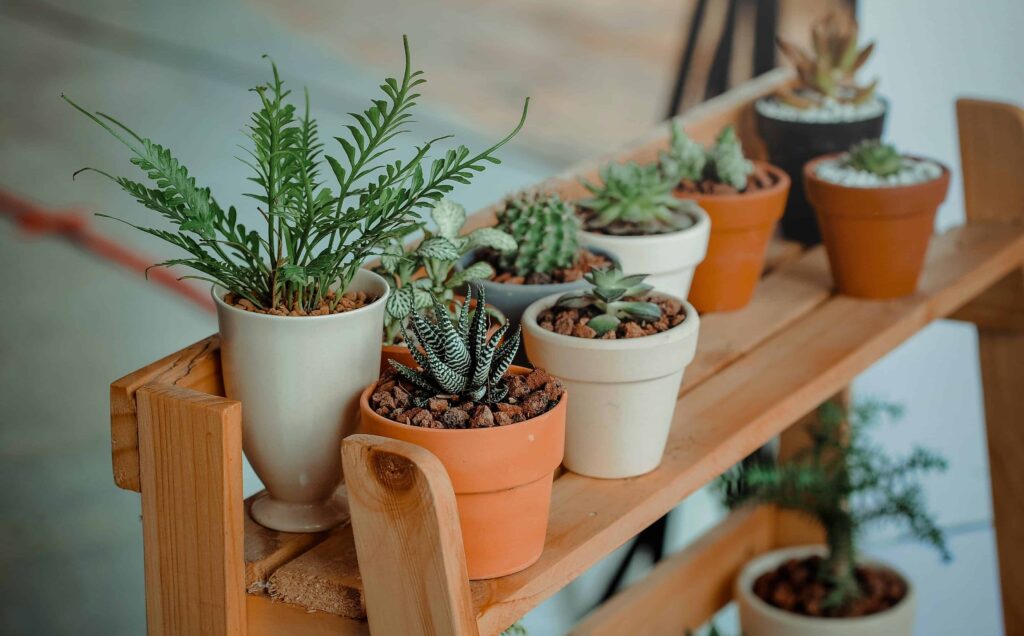
Pick eco-friendly plants that are organic produce and grow optimally in your climate and soil types. The selection of plants appropriate for the climatic conditions has potential benefits such as reduced watering requirements and decreased reliance on chemicals, thereby promoting sustainability and enhancing resilience of garden ecosystems.
How to Save Water in Your Garden
Garden water conservation is critical for sustainability purposes whereby sprinkler system helps as well. Water saving measures like mulching help in retaining soil moisture reducing evaporation thus enabling you save money. Additionally, or use sprinklers or install drip irrigation systems that will direct water at the plant roots so as to minimize wastage of water through dripping hence efficient utilization of water for home gardening.
Composting/Organic Fertilizers
Sustainable gardeners particularly need composting meaning turning kitchen leftovers into dirt that enhances soil quality in addition to making manure based fertilizers. This helps prevent soil erosion while enriching it naturally with nutrients from composts used in sustainable gardening.
Using Compost as an Organic Soil Amendment
You should integrate organic matter into your garden by starting a compost heap within it. Composts made from organic materials can improve soil structure, fertility and reduce synthetic fertilizer requirements thereby saving costs. Create compost with kitchen waste, leaves and grass clippings that add nutrients to your soil and reduce garbage that goes to landfill sites.
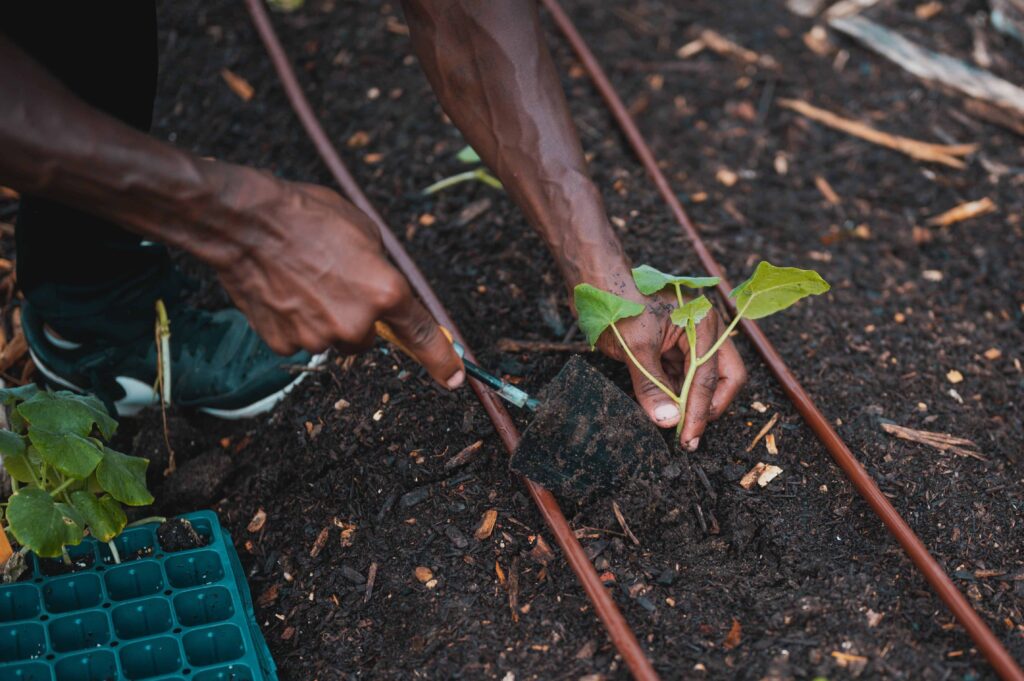
Make Your Own Organic Fertilizers
Consider natural sources like compost, seaweed, and manure when thinking about organic fertilizers. When you make your own organic fertilizers, it will be possible for you to avoid excessive use of chemicals that can be dangerous to your health while providing essential crop nutrients. Here you have a guide with 10 homemade ways to make your own fertilizer
Natural Pest and Weed Control in Your Garden
Some examples of pest control measures include using beneficial insects and cultural practices. For instance, there is the need for natural pest repellents or weed control methods in order to keep a garden healthy without applying any synthetic pesticides/herbicides.
Water Conservation
Sustainable gardening majorly relies on efficient water use which requires several strategies in place so as to conserve the resource. These include;
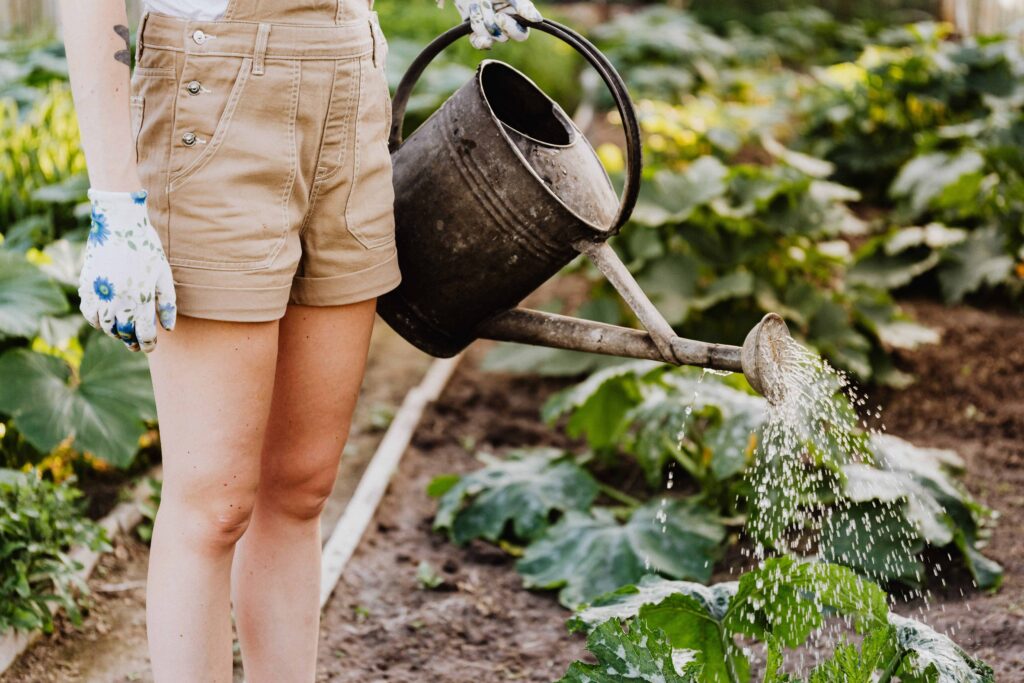
Implementing Rainwater Harvesting Systems into Your Garden
Incorporating rainwater harvesting systems which capture and store rainwater for gardening purposes. Rain barrels and cisterns are an alternative source of sustainable water supply since they help reduce potable water use while minimizing runoff rates as well as erosion within your garden area.
Drip Irrigation for Sustainable Water Use
Distributing water efficiently and in a targeted way to plants through drip irrigation is one of conserving water and ensuring that the plants grow healthily. By using this system, water can be delivered directly to the root zone of the plants thus conserving it and minimizing water borne diseases risks in your garden.
Strategies for Conserving Water in Your Vegetable Garden
In order to conserve water in your vegetable garden, mulch around plants, use efficient watering techniques, and choose drought-tolerant vegetable varieties. This way, you will be able to reduce your water usage while supplying sustainable food production.
Eco-Friendly Gardening Practices
Eco-friendly gardening practices will enable you to create a sustainable and thriving garden environment while minimizing your environmental footprint.
Using Mulch and Recycled Materials in Your Gardening Practices
To keep soil moisture intact, suppress weeds, and promote healthy plant growth use organic materials like wood chips, straw or leaves as mulch. Alternatively, find uses for recycled materials such as incorporating them into garden decor or using reclaimed wood for raised garden beds.
Encouraging Beneficial Insects to Maintain Garden Health
Attract beneficial insects like ladybugs, lacewings and pollinators to help maintain a balanced ecosystem in your garden. These beneficial insects are helpful in pest control as well as pollination hence contributing to a more resilient garden environment that is healthier.
Reusing Kitchen Scraps for Organic Gardening Practices
By reusing kitchen scraps when practicing organic gardening you can decrease food waste production and make rich composts for the soil. Transform fruit & vegetable scraps into valuable compost; coffee grounds; eggshells; enabling you enrich your garden’s soil while supporting organic growth.
Recommended Tools and Equipment for Sustainable Gardening
Moreover, finding out about the sustainable tools used in gardening can also be an added advantage towards practicing eco-friendly gardening minimizing our environmental impact.
Understanding the Impact of Harmful Chemicals and Finding Alternatives
Take note of the effect that harmful chemicals have towards the environment and always choose environmentally-friendly alternatives. Consequently, opt for organic pesticides, herbicides, and soil amendments that minimize chemical runoff while promoting a healthier garden ecosystem. Here it is a more info about the chemicals they add in the food we eat and the heath concern.
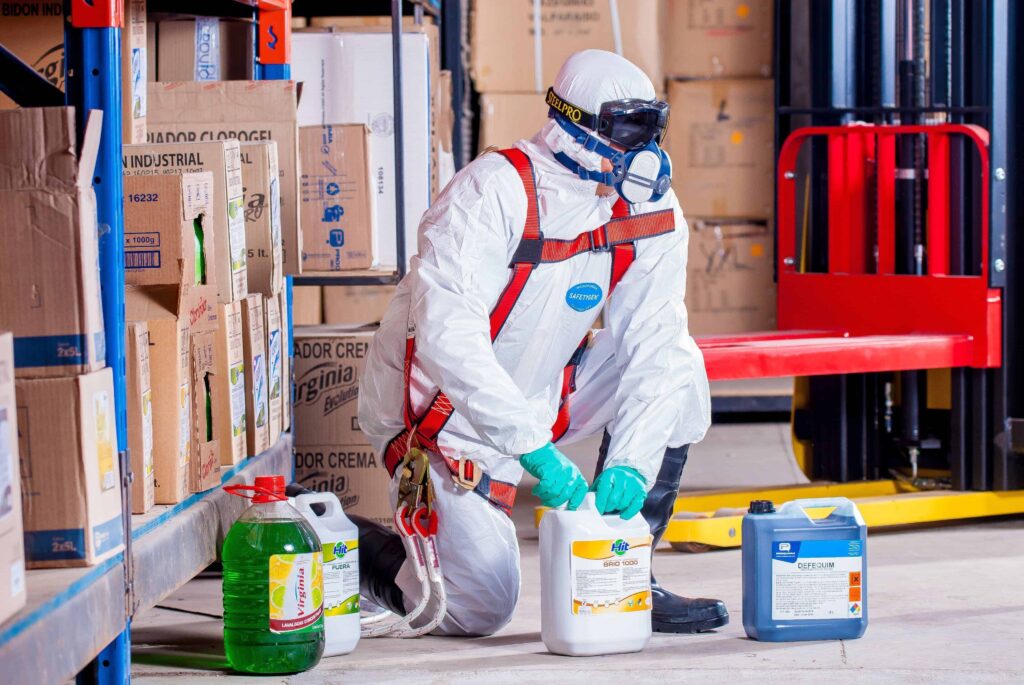
Managing Garden Waste and Reducing Your Carbon Footprint
Inculcate recycling and waste reduction practices in your garden for less carbon footprints. Compost garden waste, reuse materials, and limit the use of disposable plastic products to achieve a greener and more sustainable garden space.
Conclusion: Natural life is always better
In conclusion, think of organic gardening like a beautiful journey with your family. Growing veggies without chemicals is not just it but also about memories and lessons too. Think of your kids digging the ground or even tasting the fruits when they grow them. It’s an intimate way we communicate with mother earth to tell our children how much she means to us. That is why it is a fun healthy way to bond with your loved ones over sustainable living. So grab a shovel, plant a seed, and watch nature bring you closer as a family one plant at a time. If you are really interested in living an eco friendly life don´t miss our posts for every aspect of your life at home.
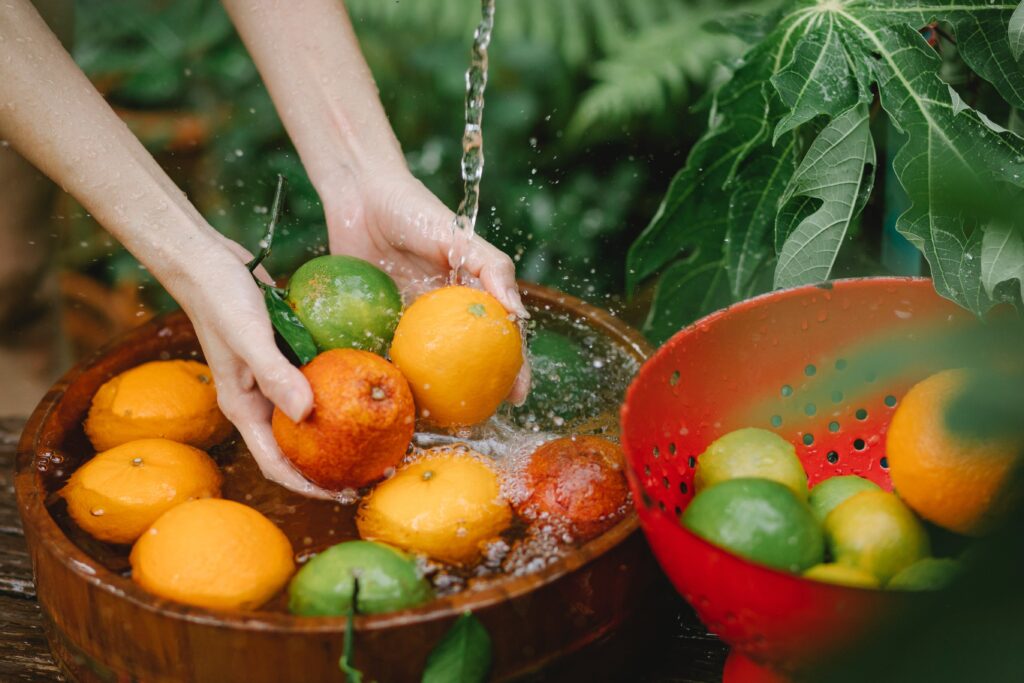
FAQ
Q: What is organic gardening and why is it important?
A: Organic gardening involves growing plants without synthetic pesticides, fertilizers or genetically modified organisms. This way of farming promotes environmentally friendly/sustainable gardening practices which produce healthy food.
Q: How can I save water in my garden?
B: To save water in your garden, you can use a drip irrigation system, mulching the soil to retain moisture, or planting drought-resistant plants. Also, collecting rainwater in barrels can help save water and keep your water bill down.
Q: What are some recommended gardening tools for organic gardening?
B: There are some tools that are commonly recommended for organic gardening such as hand pruners, a garden hoe, watering can with a nozzle or hose, digging fork and compost bin for making organic compost.
Q: How can I control pests in my organic garden?
B: You may control pests in your organic garden by using natural pest control or other pest control methods such as beneficial insect release, neem oil or insecticidal soap and companion planting to discourage them.
Q: What are some sustainable gardening tips for beginners?
B: A few sustainable gardening tips for beginners include starting small, using organic seeds and plants, composting organic waste materials, avoiding chemical fertilizers and pesticides and encouraging biodiversity within your garden.
Q: How can I start a sustainable and eco-friendly garden at home?
B: A sustainable and eco-friendly garden at home can be initiated through the selection of native plants, the creation of rain gardens to manage stormwater runoff volumes brought about by rainfall events like those in tropical climates around the world , utilization of organic approaches to farming techniques as well as offering habitats for indigenous wildlife species.
Q: How can organic gardening benefit the environment?
B: The environment benefits from organic farming through reduction of water pollution (since it uses no chemicals that will flow into rivers) and air pollution (since there is no burning involved), improvement of soil health (because it is not disturbed by tractors), increase in biodiversity (in turn attracting more birds), among other things that promote sustainability while ensuring that agricultural activities have the least possible impact on ecosystems.
Q: What are some ways to make compost for my garden?
B: Collecting organic waste such as fruit and vegetables cuttings, coffee grounds, garden clippings from your site, then mix them with a blend of browns and greens. Turning the pile once in a while speeds up decomposition.
Q: How can I create an organic garden design?
B: An organic garden design can be made by using indigenous plants, creating a diverse and balanced ecosystem, constructing walkways with natural materials and other limitations, or adding in features such as rain gardens, bee hotels and wildlife-friendly habitats.



